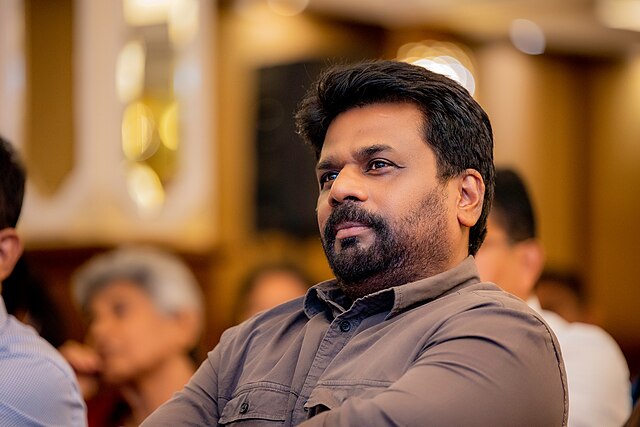On September 21, the people of Sri Lanka have elections to vote for a new president for a five-year term.
Since its independence from the United Kingdom in 1948, there have been successive conservative governments, more or less authoritarian and always in the hands of the same group of privileged families since the times of the ‘British Raj’ in the mid-nineteenth century.
With a population of 22 million, with an agricultural economy whose main production has been tea, rice, and other agricultural produce in the past and to which today, tourism and industry are added as sources of income. The distribution of wealth is unequal, the foreign debt of more than 55,000 million dollars makes the financial situation almost unsustainable.
The pandemic strongly impacted tourism, an essential source of foreign exchange, in addition to fertilizer shortages and a disastrous harvest that brought the population to the brink of despair.
This added to the devaluation of the rupee by the government of President Gotabaya Rajapakse, produced an outbreak of social discontent that lasts to this day. The high level of corruption and incompetence of all recent governments has brought the country to the brink.
The shock has been so prolonged and intense that society as a whole, for the first time has taken a proactive position in facing an election.
Four candidates are contesting the election. Three of them under different party names or as independents are representatives of the political establishment that brought about the chaos: Nimal Rajapaksa, SLPP; Sajith Premadasa, SJB; and Ranil Wickramasinghe, current president, Independent.
The fourth is an anomaly: Anura Kumara Dissanayake; NPP National Peoples Power. He belongs to the social base and comes from the socialist and socially sensitive tradition of JVP. Member of parliament from the Colombo district. Politically capable, proven honesty and probity, has served in parliament over 20 years
Anura Has been able to capture the trust and imagination of the nation. He speaks in a clear, informed, truthful and inspiring manner, free of ambiguous political jargon and formulating his main political aims with clarity. There is no arrogance in his speech, instead it projects confidence, faith in the people, and an invitation to join together in the construction of a “Renaissance” for Sri Lanka.
He has been campaigning for the last two years talking to people from all regions, walks of life, denominations and racial and religious groups.
Explaining to people that they need to be involved, must be part of it, as he doesn’t want anyone to be left behind. Gradually this style of direct communication, explaining his ideas, communicating his vision, started to penetrate, awaking hope and enthusiasm in the people, who themselves do the same with others. Anura and his team growing day by day, people of multiple specializations and from all walks of life began to see and believe his vision as their own. A political programme began to develop, formulating priorities, going from the more general to the more technical and specific.
Having them at its center. A profoundly human component that people could feel, make their own, and communicate to others.
The author, a Humanist, perceives that the NPP reflects a new political sensitivity that is growing in the world today. Opposed to the ‘realism ideologies’ behind the dying empires: the cult of money and consequent corruption; the belief in markets, not in people; the race for power in a ruthless quest, where the nearest person is a competitor not a human being; where the ‘winner takes all’; where compassion or human solidarity are considered weakness…
The world is changing, the Western empire falling and the divide in terms of fundamental values is growing every time.
In our view that is unavoidable because it responds to a more evolved human society. Where the conditions are changed for good.
Today we are instantly connected in all latitudes, in sound an image. We are 8+ billion and in a few years 10 or 15. Access to information and knowledge spreads through the world at high speed, breaching the barriers of education.
Language differences are bypassed thanks to artificial intelligence that revolutionize the speed of translations and communication among cultures.
Food, education, health, and housing need to be granted to all human beings on the planet as adopted by the United Nations in the Universal Declaration of Human Rights in 1948, and betrayed and ignored by the ‘imperial powers, defenders of freedom and civilization’.
Because of that interconnectivity in today’s world, the imagery and expectations are very similar in all latitudes, regions, countries, and cultures.
People dress similarly and eat similarly, their children have friends of different races and cultural and religious ancestries. The human nation is fast becoming one in the world. Races are mixing fast and in years to come we could expect a synthesis of racial specimens. Civilization is moving into a new stage in human evolution with new challenges and possibilities and no doubt toward a higher level of consciousness. We ought to move with the process, not against it.
We believe Anura represents that aspiration.






